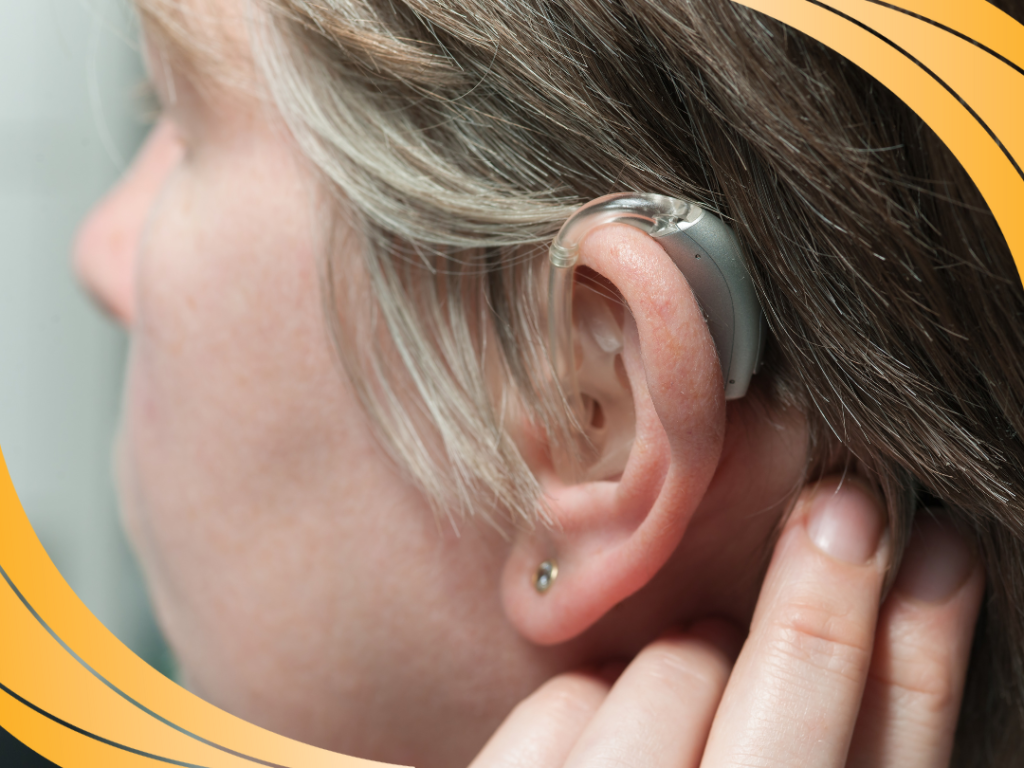
Over-the-counter hearing aids, more commonly referred to as OTC hearing aids, have been getting a lot of press lately. That’s because bipartisan hearing aid legislation passed by Congress back in 2017 is finally coming to fruition.
In the 2017 bill passed by Congress, the Food and Drug Administration (FDA) was required to create a category of over-the-counter hearing aids. While this sounds simple on paper, it took several years for the FDA to gather all the necessary information to be able to implement this change in the best way possible. And, the worldwide COVID-19 pandemic certainly helped to stall progress along the way.
In August 2022, however, the FDA finally released its rules regarding the implementation of the OTC hearing aid legislation. With the rules clarified and in place, OTC hearing aids may be hitting retail store shelves by mid-October. Now, let’s take a closer look at what these hearing devices could mean for people with hearing loss.
What Are the Pros and Cons of OTC Hearing Aids?
Similar to how over-the-counter drugs can be purchased without a prescription, OTC hearing aids will be able to be obtained without a doctor’s visit, hearing test, or a prescription. This is the equivalent of being able to get reading glasses at a drugstore without a prescription, a visit to the ophthalmologist, or a vision test.
While the over-the-counter hearing aid legislation is generally considered positive, there are some important pros and cons to consider before deciding to purchase OTC hearing aids yourself.
Pros of Over-the-Counter Hearing Aids
- These hearing devices will be easily obtainable – There is no hearing test, doctor’s visit, or prescription required for purchase.
- Higher potential for early hearing loss treatment – Without needing medical intervention to get OTC hearing aids, some people may choose to treat their hearing loss earlier than they would have otherwise.
- Lower cost – While the actual cost of OTC hearing aids remains to be seen, it is anticipated that they will be cheaper than hearing aids obtained through a hearing professional. This is partly due to the fact that these are self-fit devices.
Cons of Over-the-Counter Hearing Aids
- Potential for lower satisfaction – Hearing aids that aren’t fitted properly or adjusted by a hearing healthcare professional may not be as effective for improving hearing. This has already shown to be true with the over-the-counter amplifier and mail-order hearing aid markets.
- Age restrictions – According to FDA labeling, OTC hearing aids are only meant for individuals over 18 years of age. This excludes younger children who suffer from hearing loss and are often misdiagnosed or untreated.
- Hearing loss type and severity – Over-the-counter hearing aids are designed for individuals with perceived mild to moderate hearing loss and may not be appropriate for every type of hearing loss.
- Contraindications – OTC hearing aids should NOT be used by individuals with tinnitus, dizziness, vertigo, one-sided hearing loss, or moderately severe to profound hearing loss.
Can Anyone Use OTC Hearing Aids?
As mentioned above, over-the-counter hearing aids are NOT meant for everyone. Per the FDA, they are specifically designed for individuals over the age of 18 who have perceived mild to moderate hearing loss.
Visit Your Hearing Aid Specialists In Mesa and Scottsdale, AZ
It’s important to realize that the intentions behind the OTC hearing aid legislation are good:
- To reduce hearing aid cost
- To improve access to hearing aids for more Americans
- To encourage earlier hearing loss treatment
However, whether these goals will be realized remains to be seen.
In the meantime, the audiologists and staff at Advanced Hearing Group are here to help you with all of your hearing healthcare needs. From hearing tests and thorough hearing evaluations to custom hearing protection, and hearing aid fittings, we are committed to helping you hear better for life. Simply schedule an appointment with us today, and we’ll help you get started on the road to better hearing!

The post Are Over-the-Counter (OTC) Hearing Aids Right For You? appeared first on Hear Well – Live Well.
Source: Hear Well-Live Well Blog

